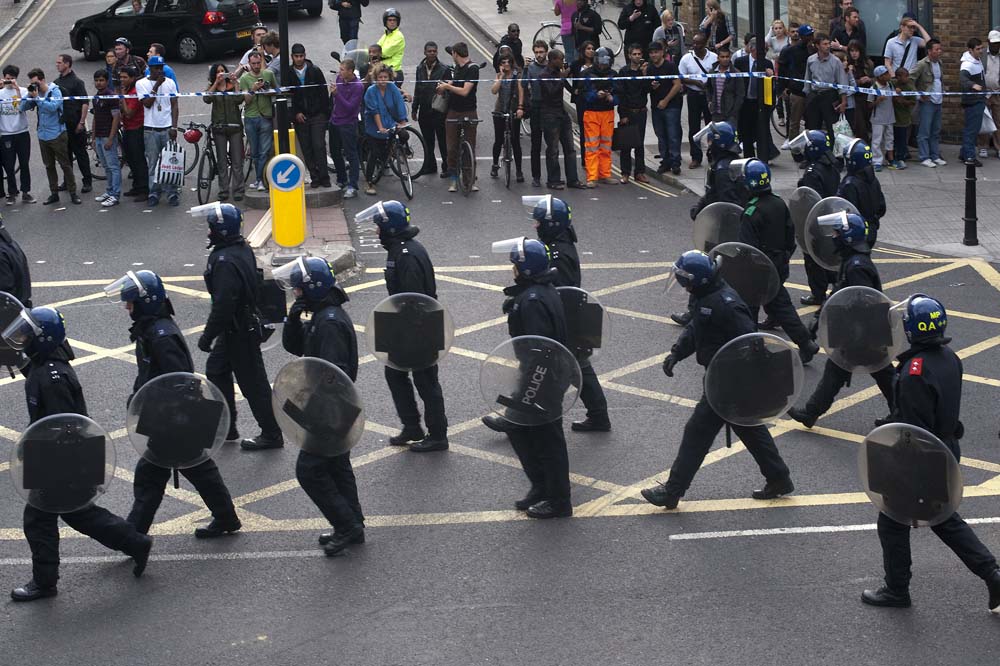James Ivens, Socialist Party national committee
The Metropolitan Police has just joined five other forces in being put into special measures. Plummeting public confidence has pushed the national inspectorate to intervene.
This follows the resignation of Met commissioner Cressida Dick in February. She had till then stayed in post, despite repeated scandals, partly because of mutual benefit in shielding Boris Johnson as ‘Partygate’ broke.
That exposed the ‘one rule for them, another for us’ nature of law enforcement. Police ignored Boris Johnson’s lockdown breaches for months – while fining protesters for resisting Tory attacks.
And the police’s institutional racism, sexism and homophobia have come back into view before and since. Black people were over twice as likely to receive fines for lockdown breaches. The disgraceful strip-search of Child Q, a young black woman in Hackney, led to a further eight strip-searches of children coming out.
In the first year of Dick’s tenure, starting in 2017, ‘stop and search’ – disproportionately used on black people – quadrupled. More recently there was public disgust at racist and sexist private messages sent by officers at Charing Cross, and lurid photos of murdered black women shared by officers at Wembley.
Sarah Everard was murdered by a serving policeman – reportedly nicknamed “The Rapist” by colleagues. The Met then violently suppressed a vigil for her, and advised women fearful of violent cops to hail a bus driver.
Police failed to do basic investigation work into gay victims of rape and murder as serial killer Stephen Port tore through London. A new report has found that police around the country misuse their authority to undermine domestic abuse reporting.
And this is just some of what we know about now. The full report into the Met isn’t due out until August. But we can safely say even that will only scratch the surface.
Unfortunately, these scandals are not one-offs caused by temporary misleadership. The police are not ultimately accountable to working-class communities and the general public, but to representatives of the capitalist elite.
The Met chief is appointed by the home secretary, and most others by elected but distant police and crime commissioners. There is no collective, democratic control by workers and local communities over how their areas are policed.
The current evidence doesn’t even suggest police forces consistently try to protect ordinary people from crime. In fact, Greater Manchester is in special measures for failing to report 80,000 crimes and closing cases without even trying. (The Cleveland, Gloucestershire, Staffordshire, and Wiltshire forces complete the current list where the state watchdog has stepped in.)
Failure to carry out this basic, day-to-day role has seriously undermined the legitimacy of the police. And with an unpopular government and opposition facing a rising wave of industrial action, the capitalists need a force they can rely on in a pinch.
The ongoing Undercover Policing Inquiry has exposed the Met’s role in infiltrating and trying to undermine the democratic organisations of the workers’ movement. But the wider ranks of the police force are also a blunt instrument for the capitalist state to use against protest and strikes, as in 1984-85 against the miners.
Thatcher, by the way, was careful to pay them well. Today the police have suffered cuts and wage restraint alongside the wider public sector. Even the chair of the Police Federation – a pseudo-union controlled by management – has asked if this is “because, as many of my colleagues feel, we do not have a right to strike.” Police in Scotland have ‘withdrawn their goodwill’ by refusing to start work early and other measures, in response to real-terms pay cuts.
The Tory policing minister and Blairite mayor of London, Sadiq Khan, are busily trying to blame each other for the scandals. The reality is they both preside over a system built on inequality and division – capitalism – which the police force both protects and reflects. The working class needs a mass party of its own to challenge them, and the unions should take steps towards one now.
The Socialist Party demands democratic trade union and community control over police policy and hiring in every area to make safety, rather than defence of an elite, the goal. But we also fight for a socialist society, where planning to provide for the needs of all replaces the misery and bigotry that breed crime and violence – including the criminal attitudes and violence institutionalised in the police.







